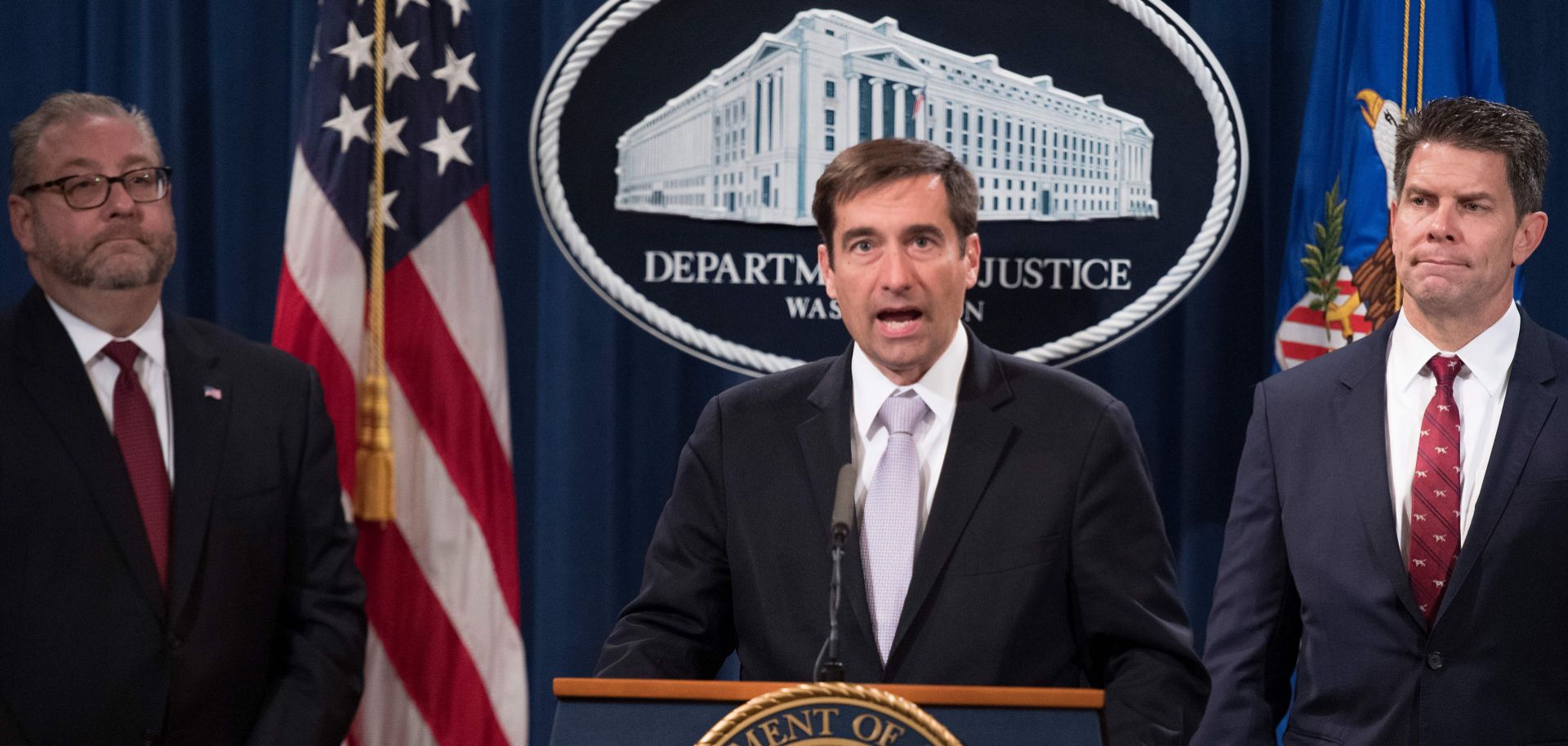COLUMNS
China Looks at U.S. Tech-Limiting Measures and Sees Gunboat Diplomacy

Nov 20, 2018 | 10:00 GMT

John Demers, assistant attorney general for national security, speaks in Washington, D.C., on Nov. 1 after the creation of a new initiative to crack down on Chinese intelligence officials pilfering intellectual property from U.S. corporations. New measures against China, however, are only likely to strengthen Beijing's resolve to acquire technology by any means possible.
(JIM WATSON/AFP/Getty Images)
Highlights
- As China attempts to achieve technological parity for reasons of national security, the U.S. government will continue to deploy a wide array of tools against these efforts, particularly Beijing's attempts to obtain trade secrets illegally.
- These U.S. actions, however, will merely convince Beijing to break its dependence on Western technology by any means possible, since they vividly remind China about how a technologically superior West victimized it during the days of gunboat diplomacy.
- Fearful for its own future in the wake of Washington's actions, Russia will also strive to obtain technology by any means possible.
Subscribe Now
SubscribeAlready have an account?
